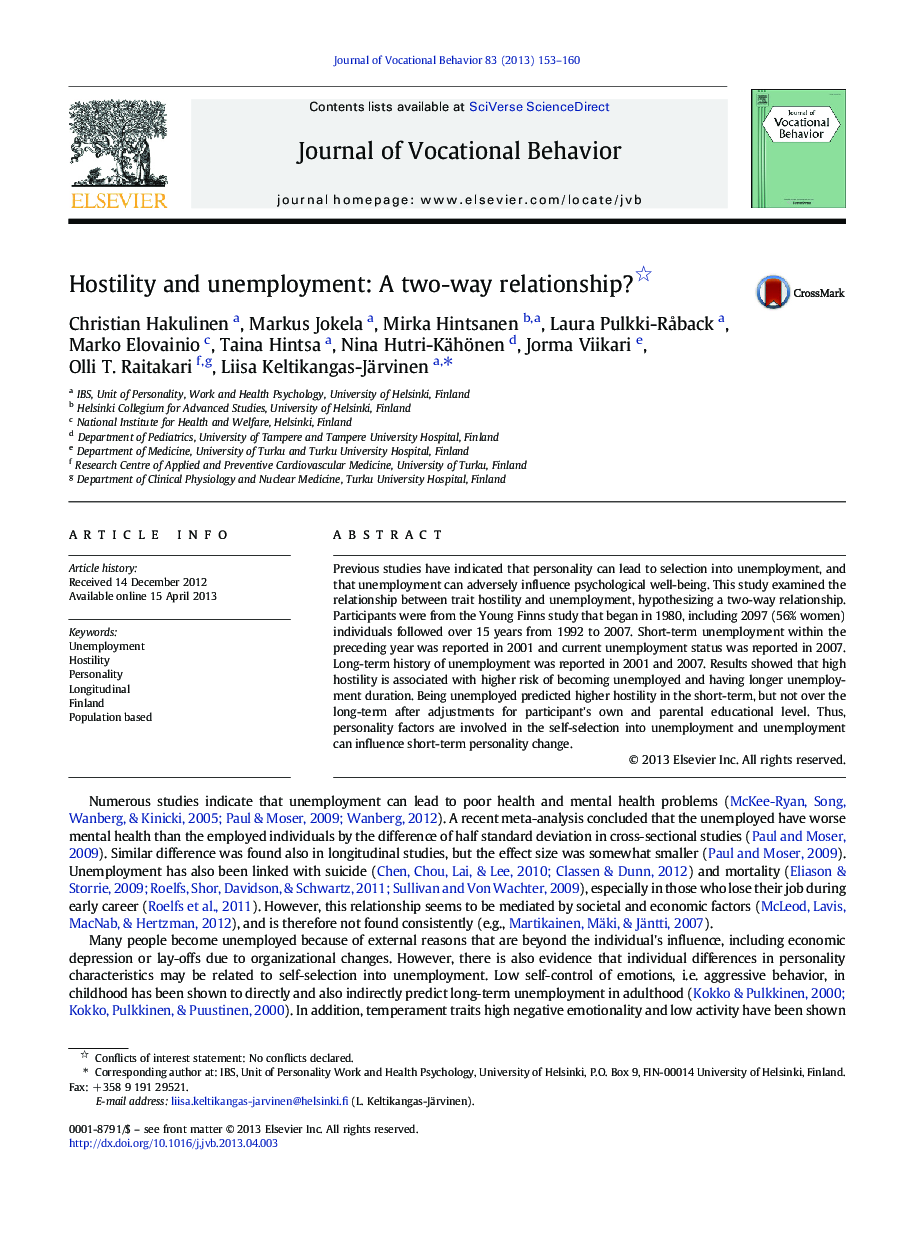| Article ID | Journal | Published Year | Pages | File Type |
|---|---|---|---|---|
| 886880 | Journal of Vocational Behavior | 2013 | 8 Pages |
•Unemployed individuals had higher hostility levels than the employed.•High hostility predicted higher likelihood of being unemployed and longer unemployment duration over 6 and 15 years.•Unemployment was independently associated with higher hostility in short-term, but not in long-term.
Previous studies have indicated that personality can lead to selection into unemployment, and that unemployment can adversely influence psychological well-being. This study examined the relationship between trait hostility and unemployment, hypothesizing a two-way relationship. Participants were from the Young Finns study that began in 1980, including 2097 (56% women) individuals followed over 15 years from 1992 to 2007. Short-term unemployment within the preceding year was reported in 2001 and current unemployment status was reported in 2007. Long-term history of unemployment was reported in 2001 and 2007. Results showed that high hostility is associated with higher risk of becoming unemployed and having longer unemployment duration. Being unemployed predicted higher hostility in the short-term, but not over the long-term after adjustments for participant's own and parental educational level. Thus, personality factors are involved in the self-selection into unemployment and unemployment can influence short-term personality change.
